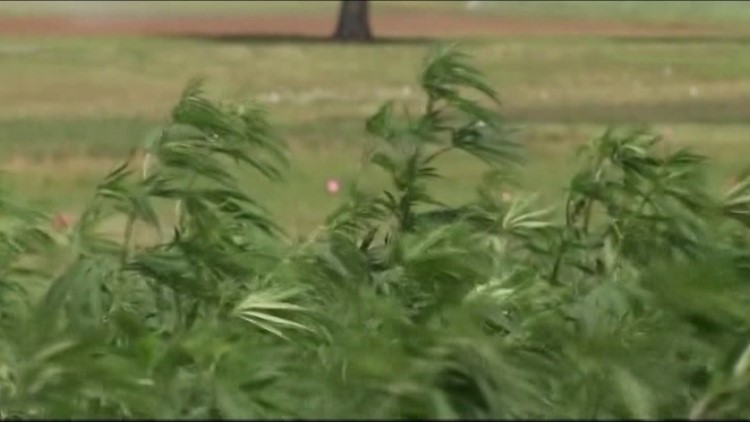HARTFORD — With the new growing season underway, Connecticut’s Department of Agriculture has been busy processing applications from dozens interested in growing industrial hemp as part of the state’s new research pilot program.
As of June 14, the agency had approved 35 licenses for prospective growers, while an additional 24 applications were undergoing a review.
“In total, between our approved licenses and completed applications, there is a total of approximately 130 acres that are approved for hemp plantings,” said Department of Agriculture Commissioner Bryan Hurlburt in an email to The Associated Press. “We understand how important it is to expedite the process and have been very diligent in keeping the process moving forward.”
Democratic Gov. Ned Lamont signed legislation on May 11 authorizing the agency to implement the new research pilot program, allowed under the 2014 federal Farm Bill. It was one of the first bills Lamont signed into law, in hopes of getting the program up and running for this year’s growing season.
Connecticut’s new law requires hemp growers, processors and manufacturers to obtain state licenses and abide by various requirements, including testing rules to ensure the hemp’s levels of THC — the psychoactive compound that gives marijuana users a high — are at or below 0.003%. Under the 2018 federal Farm Bill, hemp is no longer a controlled substance.
Besides the growers’ applications, the Department of Agriculture currently has one hemp processor license pending. Connecticut’s Department of Consumer Protection has approved seven manufacturing licenses so far, with one application still pending.
Growers and processors will have to provide research plans to the state until the pilot program ends and Connecticut’s Hemp State Plan receives final federal approval, expected in 2020. After that happens, Connecticut’s growers and processors will no longer be required to “research” hemp.
Connecticut Farm Bureau President Don Tuller said there’s a lot of interest from veteran farmers and newcomers alike in growing industrial hemp, which advocates say has thousands of uses. Tuller said he’s heard from one person who is renting land and “clearly has never done this before” and from one veteran organic farmer who ordered about 2,000 plants.
A farmer himself, Tuller said he decided to hold off on growing hemp, saying there are too many unknowns.
“It’s the Wild West a little bit. Everybody is getting started in a new thing and there aren’t any people around who have been doing it for years,” he said, adding how there are questions about how to control pests and deal with Connecticut’s climate, in addition to the cost of buying seeds or seedlings from an approved source, renting or building shed space to dry the hemp and acquiring the necessary equipment.
But Tuller said the Farm Bureau wanted to make sure Connecticut’s farmers had the opportunity to give hemp a try. The organization has estimated that an acre of hemp could generate profits ranging from $37,500 to $150,000 depending on different variables, including what the hemp is being grown for and whether seeds or seedlings are being planted.
“Whether the $100,000 is realistic or not, I can’t tell you it’s possible. You kind of latch on to what you want to latch onto,” he said. “We just want farmers to have the opportunity to participate, to get a crop in the ground this year … How important this is going to be, time is going to tell.”



